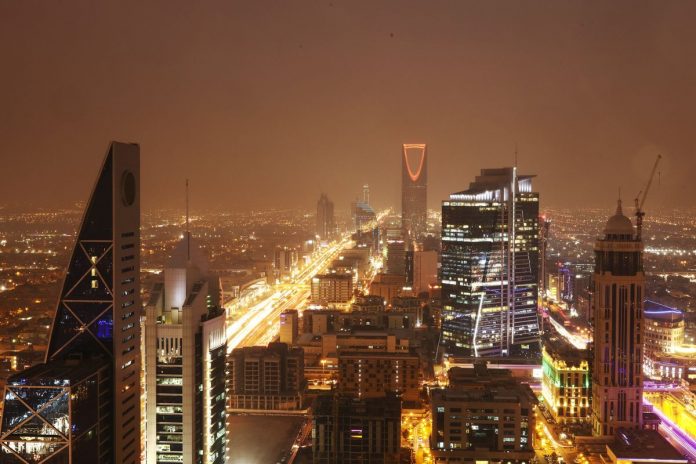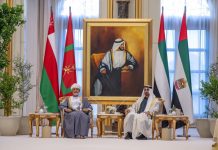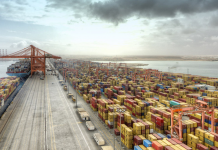The Middle East economy is expected to recover in 2020 following a year of slow growth in 2019. Oil will continue to be the dominant driver of growth in the GCC nations, said a new research by accountancy and finance body ICAEW (Institute of Chartered Accountants in England and Wales) and Oxford Economics.
Iran and Saudi Arabia will observe a good improvement while the outlook for the United Arab Emirates will continue to remain promising, with Expo 2020 expected to boost the economy significantly.
The Middle Eastern economy remained weak in the second quarter of the year. “We now expect GDP to decline modestly this year (2019) by 0.5%, down from growth estimated at 0.7% in 2018. Our forecasts point to some pick-up in 2020, to about 2.1%, as the two of the largest economies in the region, Iran and Saudi Arabia, accelerate after a dire 2019. Iran’s sanctions-induced contraction this year, which we estimate at 9.3%, has weighed heavily on the aggregate headline growth. Meanwhile, Saudi Arabia is barely growing, at only 0.1%, reflecting for the most part significant overcompliance with OPEC-led oil output cuts,” said ICAEW.
A weak global demand will constrain the scope for the Organization of the Petroleum Exporting Countries (OPEC) and its allies, which will continue to keep a lid on oil prices, maintaining a key headwind for GCC commodity-dependent economies.
“Spending restraint would weigh on near- and medium-term non-oil output growth estimates. This is especially true given the generally weaker sovereign balance sheets compared with a few years ago. Oil prices stand significantly below most producers’ fiscal breakeven levels this year – prices required to meet expenditure targets, while running balanced accounts. In the region, only Kuwait and Qatar can cover spending needs. For Saudi Arabia, for instance, we forecast the fiscal deficit will widen to 6.8% of GDP this year from 5.9% in 2018,” adds the report.
GCC: Government budget balance
In terms of government budget, GCC banks are now following the moves of the US Federal Reserve and supporting private sector. Kuwait’s central bank joined in the easing in October, having skipped the previous two cuts as the basket of currencies that the Kuwaiti dinar is calculated against allows some flexibility to deviate from the path carved out by the Fed.
“Elsewhere in the region, several countries have experienced major protests, including Algeria, Egypt, Iran, Iraq and Lebanon, with levels of economic and political frustration growing in the face of corruption, inequality and mismanagement,” says the report.
In Lebanon, the unfolding economic crisis has reinforced the downturn, with ICAEW lowering its 2019 GDP growth forecast to just 0.1%, from 0.8% three months ago. The 2020 forecast is 1.4%, significantly slower than the 2% previously anticipated.
UAE Outlook & Expo 2020
The outlook for the UAE continued to be optimistic, despite current weak momentum in the non-oil sector. The organisation expects a boost in UAE and Dubai economy against the backdrop of Expo 2020, Middle East’s first World Expo event.
“Investment is ongoing and it is hoped that Expo 2020 will attract 25m visitors (14m from overseas) in the six months it is open. We maintain our expectation that non-oil GDP growth will accelerate in 2020, to 2.8%,” says the report.
Overall, our 2019 growth forecast for UAE has been revised down to 1.9%, from 2.2% before. But in 2020, the economy is likely to expand by 2.2%.
The country’s upsurge in oil production also reflects a positive contribution to growth from the oil sector, which has expanded by about 2.5% year-on-year this year.
The UAE’s top rank among GCC nations in the recent World Bank Doing Business update along with Lonely Planet listing Dubai as one of the key cities to visit and the Dubai International Financial Centre in the top 10 global financial centres, the outlook looks positive for the nation,
Total employment in the private sector has also increased by 1% y/y in Q2 2019, up from just 0.1% y/y in Q1.
“The authorities have stepped in to support activity; both Abu Dhabi and Dubai are implementing fiscal packages, while the recent interest rate cut by the US Federal Reserve, followed by the UAE central bank given the dollar peg, should support private sector credit growth. But these measures are yet to have an impact on non-oil activity. Nevertheless, Expo 2020 is expected to provide a boost to non-oil activity, with some estimating a contribution of up to 1.5% of GDP,” says the report.






